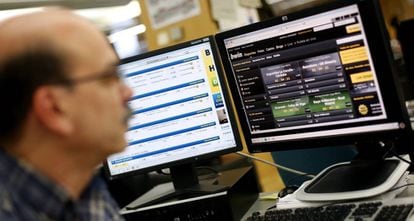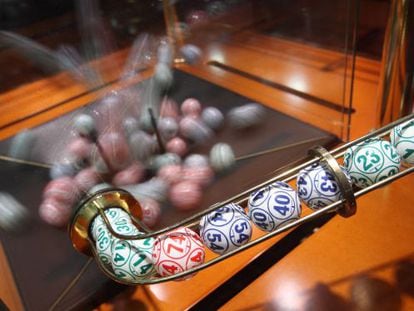Why the Spanish government’s bet on online gaming hasn’t paid off
Spaniards are gambling more than ever but insiders say laws mean industry is struggling to compete


Oscar García-Pelayo has gambling in his blood. His father, Gonzalo, was the inspiration for the 2012 Spanish comedy, The Pelayos – Winning Streak, which charts his family’s real-life success in casinos across the world using a legal system based on wheel bias in roulette.
Oscar plays poker these days, and he wins, although the sums are a little smaller each time. He no longer spends eight hours a day playing, perfecting his game and teaching others. He is no longer in charge of the family operation that once boasted 2,000 signed-up online gamblers a month. In fact, he no longer even plays poker in Spain because the state of play has changed over the last four years.
Spain’s online gaming regulations were a botch job Oscar García-Pelayo, professional gambler
Since the government regulated online gaming in 2012, there’s been no shortage of people willing to spend money on a bet. According to the Directorate General of Gambling Management, the amount of money being wagered has multiplied by four since then, rising to €8.5 billion last year, and that’s excluding money spent on the online lottery. And this year promises to trump that. The industry, made up of 52 companies, saw a 32% year-on-rise in the second quarter of 2016, with €2.7 billion being gambled in that period, or the same amount as the total figure for the year the new rules were introduced.
But, as with all gambling, things are not as straightforward as they seem. Before the 2012 law obliged foreign companies to be licensed to operate in Spain, the sector was arguably moving even larger quantities of money: García-Pelayo criticizes the new law for “restricting the market.” The law also rules that Spaniards cannot play with gamblers in other countries, causing the operators to lose a lot of traffic. “It cut out a lot of punters with a lot of money and who weren't any good,” Oscar says from Chile. “We would call them ‘the suckers’ and they were usually from Eastern Europe, Turkey and the United States.”
Objections to the law
Laura Guillot, an expert on the gambling industry, also attacks the 2012 law. She says Spain has introduced some of the highest taxes on gambling operators in Europe, and business suffers as a result. The fact that you can only play with other Spaniards online reduces international cash flows, making it less attractive to punters. Margins are narrow and small operators find it hard to compete.
The 2012 law prompted four multinationals and another 10 companies to pull out of the Spanish market. One of them was Oscar’s; he was asked to pay a license fee of €300,000. Sources from the Directorate General of Gambling Management explain that this is part of the “natural process” of a shift into a more regulated environment.
Currently, betting is the most popular form of gambling in Spain with half of punters’ money going on horse racing and other sport. Casino gambling is next, accounting for 36%, followed by poker (13.7%), while the share of games such as bingo has dropped to less than 1%.
Government estimates exaggerated the size of the market Sacha Michaud, JDigital President
Guillot explains that younger punters in particular have turned to betting on sport because it is “easy and exciting." But JDigital president Sacha Michaud says it’s also because new businesses are operating in that field without licenses, not just because of Spain’s addiction to sport.
This shift away from online gaming has meant that the treasury’s hopes of filling their coffers with between €80 and €120 million euros have proved overly optimistic. The estimate was fairly accurate in 2012, when they collected €101 million. But the figure has gone into gradual decline with only €52 million collected in 2015.
“Their estimates exaggerated the size of the market,” says Michaud, who adds that the money going to the treasury does not tally with the amount of money being gambled because the tax is applied to the operators’ gross gaming revenue. As far as Oscar García-Pelayo is concerned, the regulations introduced for online gaming were “a botched job,” driven by the need to collect money as fast as possible “to cover up for the dreadful handling of the economy by our governments in recent years.”
Predictions for 2016
Experts explain that to understand the sector, you have to take into account Gross Gaming Revenue (GGR) – before winnings – rather than the amount of money gambled. The GGR in the second quarter of 2016 was €98.84 million, a 56.34% rise on the same period last year. According to the Directorate General of Gambling Management, if the trend continues, the year will close with a GGR of slightly more than €400 million. And gamers will have won around €11 million.
English version by Heather Galloway.












































